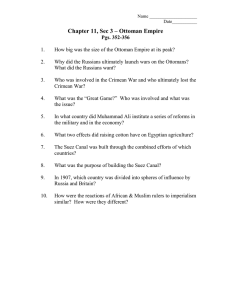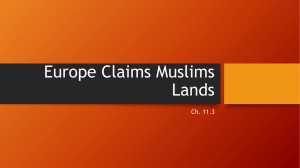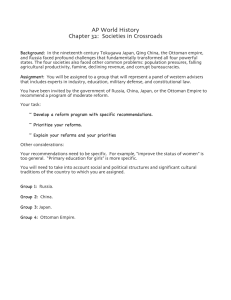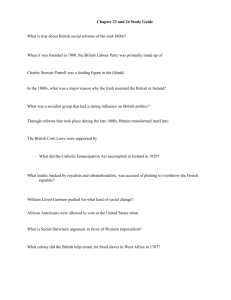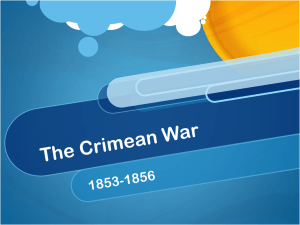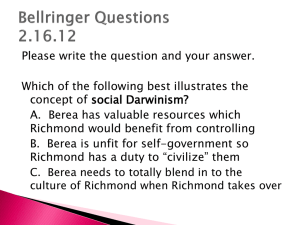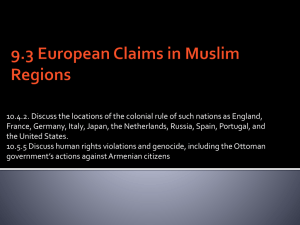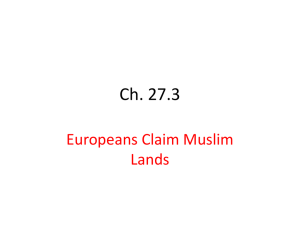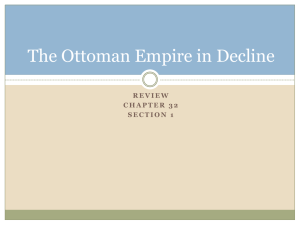11.3 powerpoint
advertisement
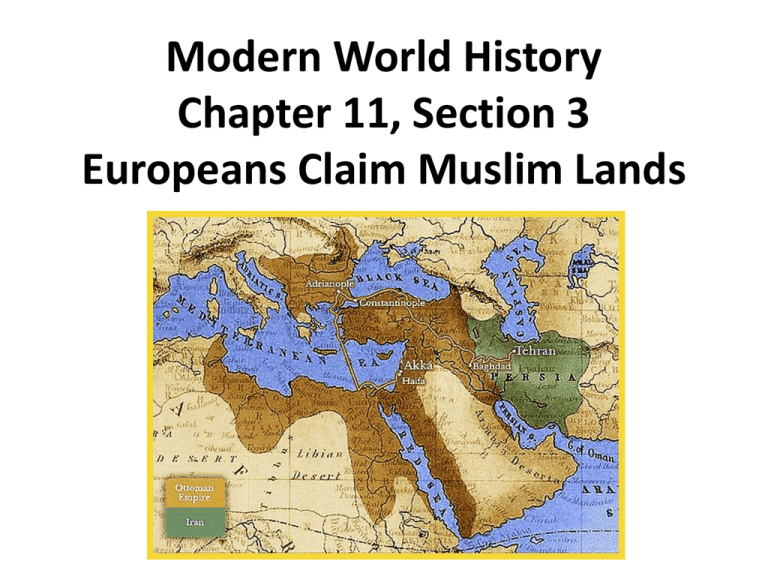
Modern World History Chapter 11, Section 3 Europeans Claim Muslim Lands Ottoman Empire • Controlled North Africa, parts of Middle East, Turkey, and Balkan Peninsula • As it weakened European powers competed to take its lands • Reasons it weakened: – It was slower to modernize than the rest of Europe – Series of weak emperors following the death of Suleyman the Great – Govt. became corrupt – Heavy inflation – Nationalist feelings in peoples ruled by the empire Europeans Grab Territory • Geopolitics – interest in or taking of land for its strategic location or products • Ottoman Empire was attractive to European powers due to its location in the Mediterranean Sea and control of sea trade Crimean War ↖ ↗ Balkans Crimea • Russian czars had fought several wars to gain land on the Black Sea to give them access to water for trade • Crimean War – war in 1853 between the Russians and the Ottomans over the peninsula in the Black Sea where most of the fighting took place – France and Britain entered the war on the side of the Ottoman Empire to prevent Russia from gaining more land and defeated the Russians • Russia later helped the Slavic people of the Balkans win their independence when they rebelled against the Ottomans – Ottomans lost control of Romania, Montenegro, Cyprus, Bosnia, Herzegovina, and Bulgaria “The Great Game” • Another geopolitics struggle during the late 1800s that took place in Afghanistan between Britain and Russia • Russia wanted to extend to India, Britain wanted to extend north, Afghanistan in the middle • Afghanistan was an independent Muslim kingdom • After decades of fighting both Britain and Russia eventually withdrew Modernization in Egypt • To avoid being controlled by European powers, some Muslim leaders decided to modernize • Egypt’s location at the head of the Red Sea was desired by the British and French • New leader Muhammad Ali broke away from the Ottoman Empire began reforms in the military and economy – Cash crop farming of cotton – Later built the Suez Canal Suez Canal • Suez Canal – man-made canal that cut through the Isthmus of Suez that connected the Red Sea to the Mediterranean Sea and opened 1869 which was built mainly with private French investments and Egyptian labor • The allowed shipping to go from Europe to the Far East without having to steam around the southern tip of Africa • Egypt fell into debt as it was unable to pay back the European banks it borrowed from • The British insisted on taking financial control of the canal and sent troops to occupy the region in 1882 Persia Pressured to Change • Russia and Britain competed over Persia – Russians hoped to gain access to the Persian Gulf ports – British wanted to take advantage of oil found there • Persian rulers gave western businessmen concessions to develop its resources (set up spheres of influence) • Religious leaders fought these concessions as they feared western influences on their people • Tobacco boycott against a foreign business led to riots that spun out of control – Persian ruler was forced to establish a constitution to settle things down
